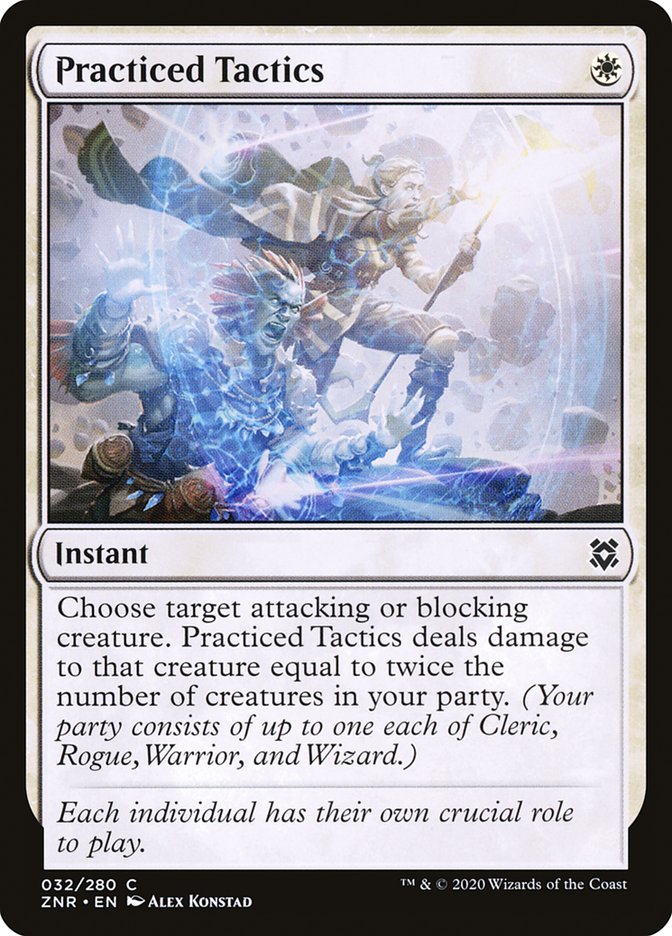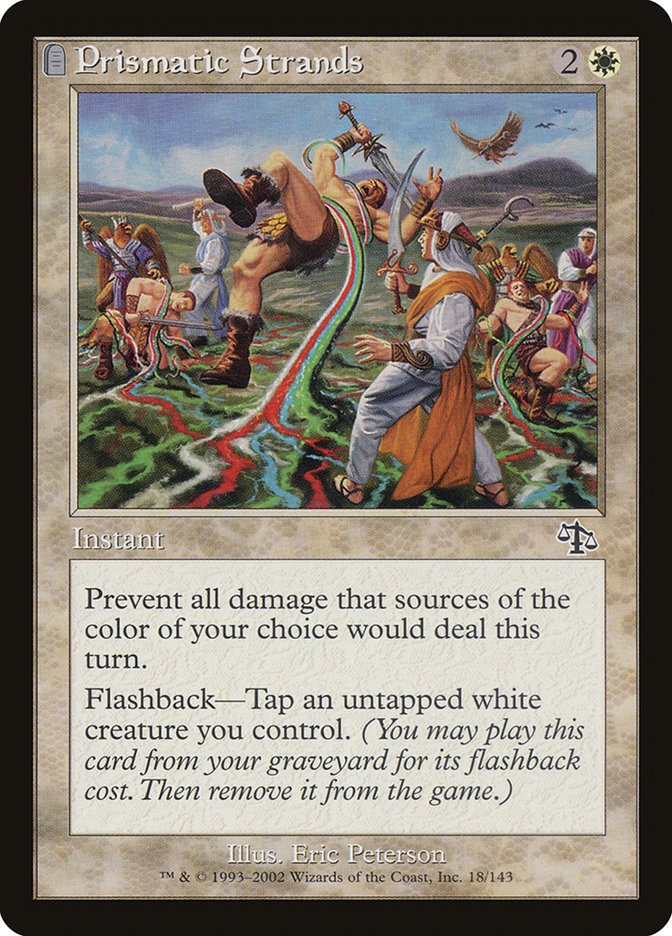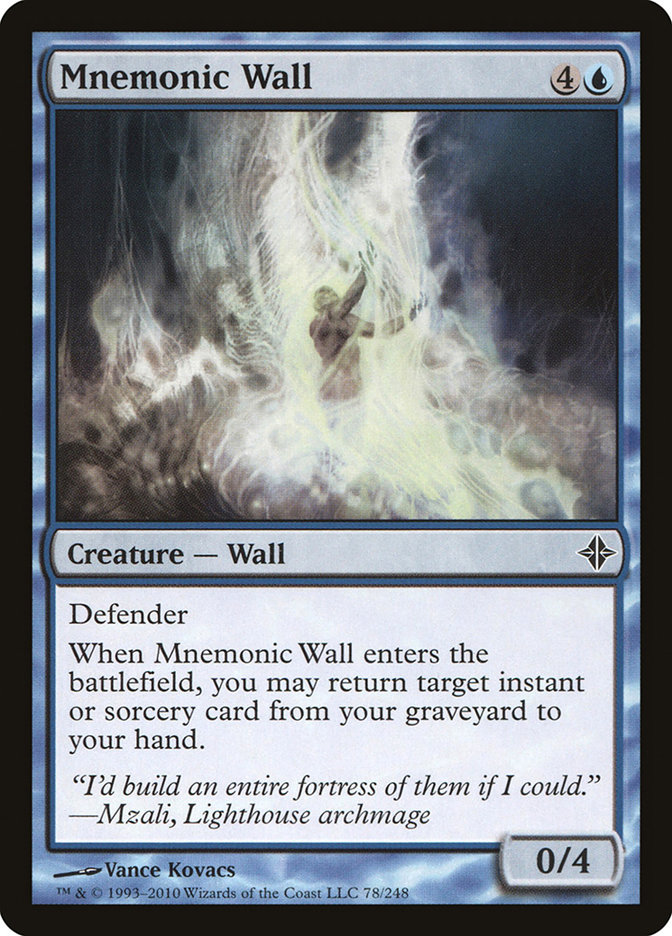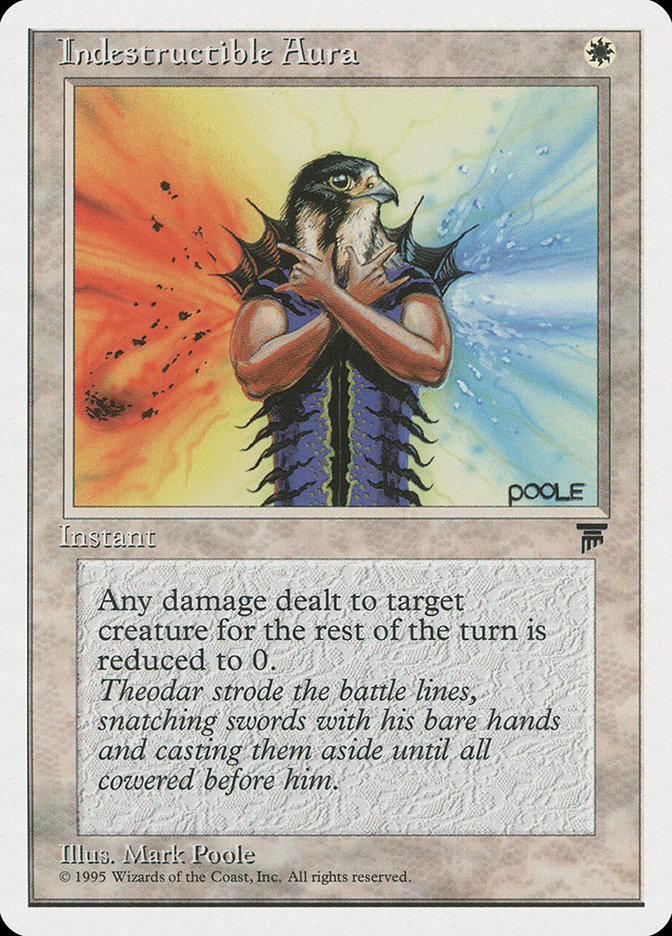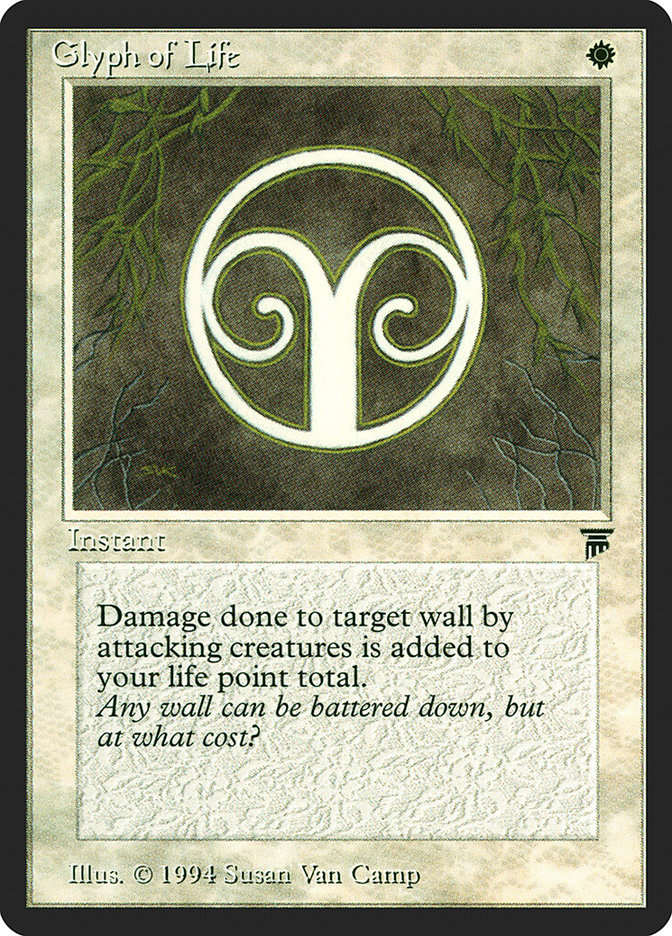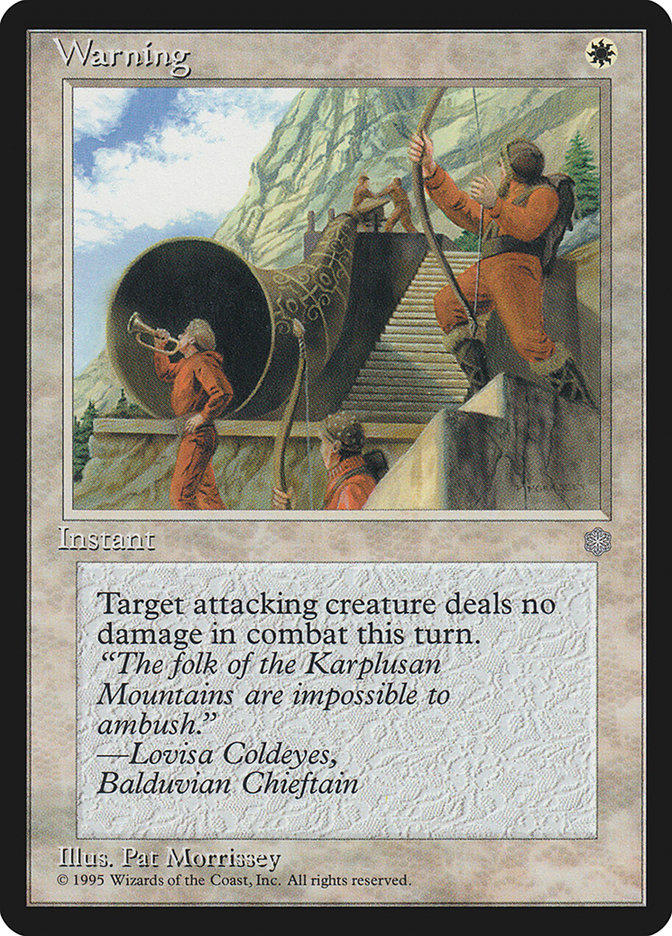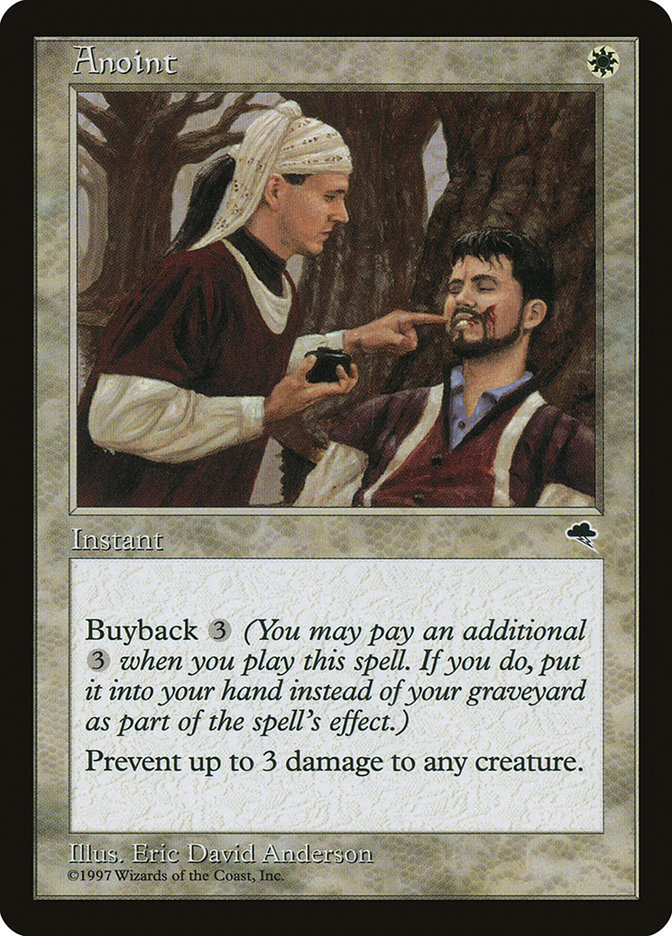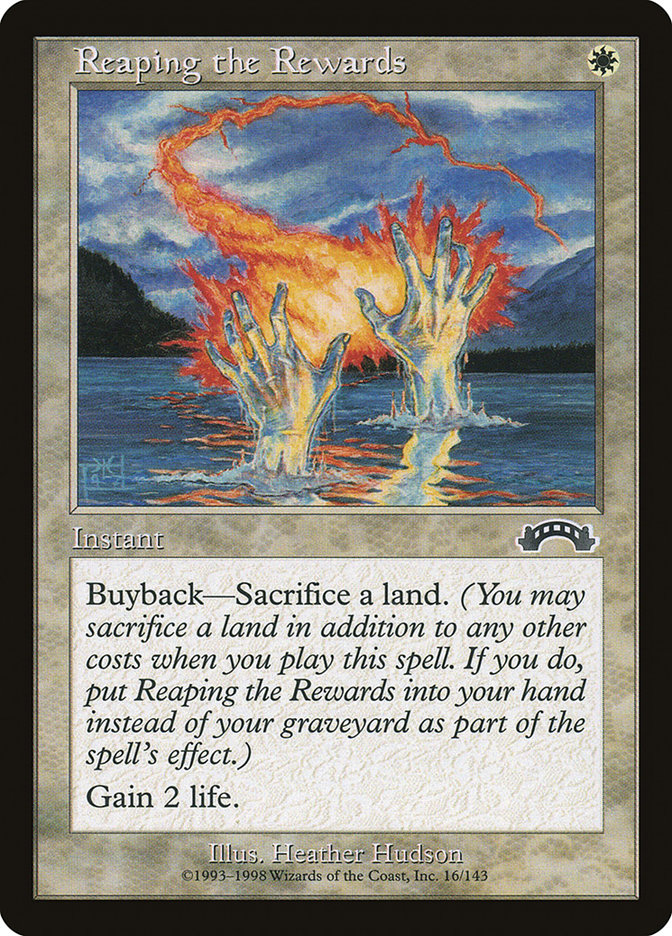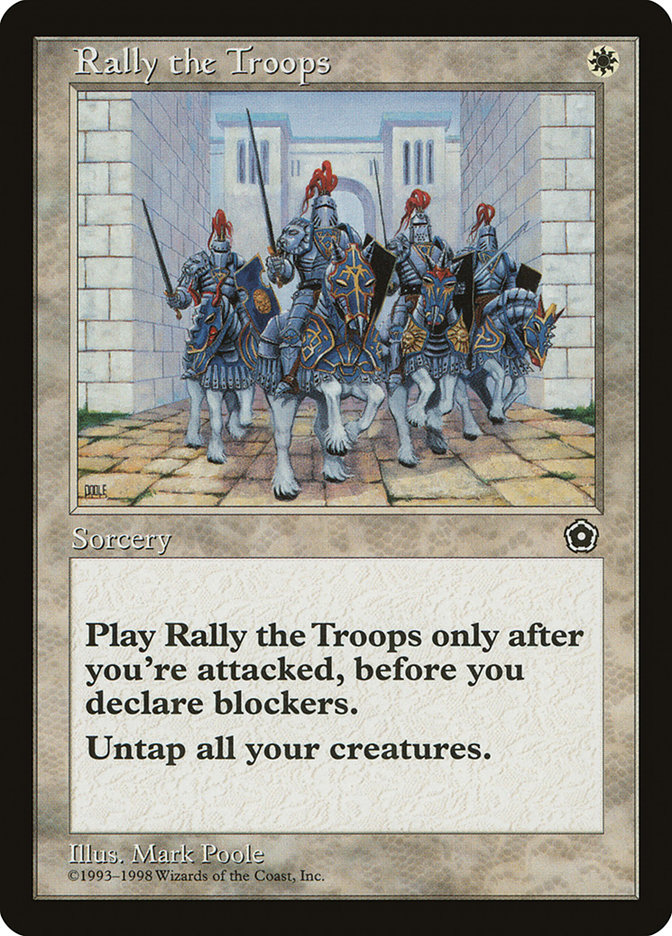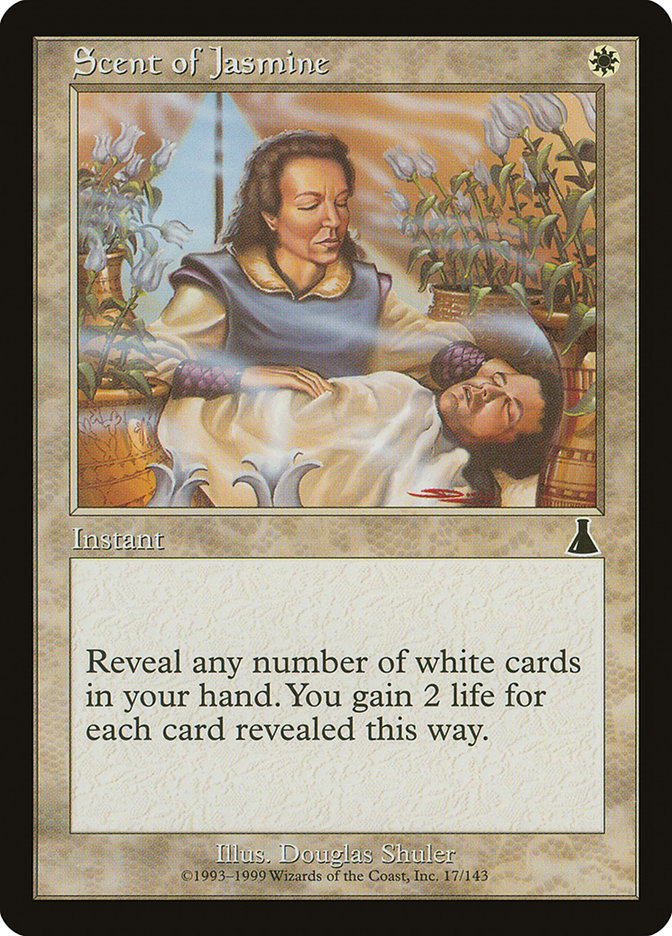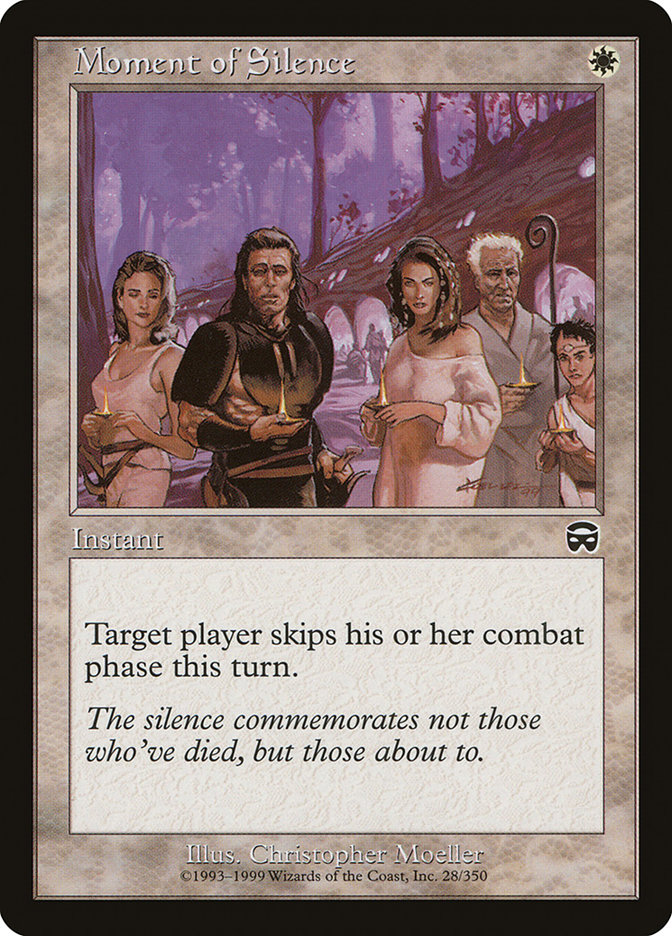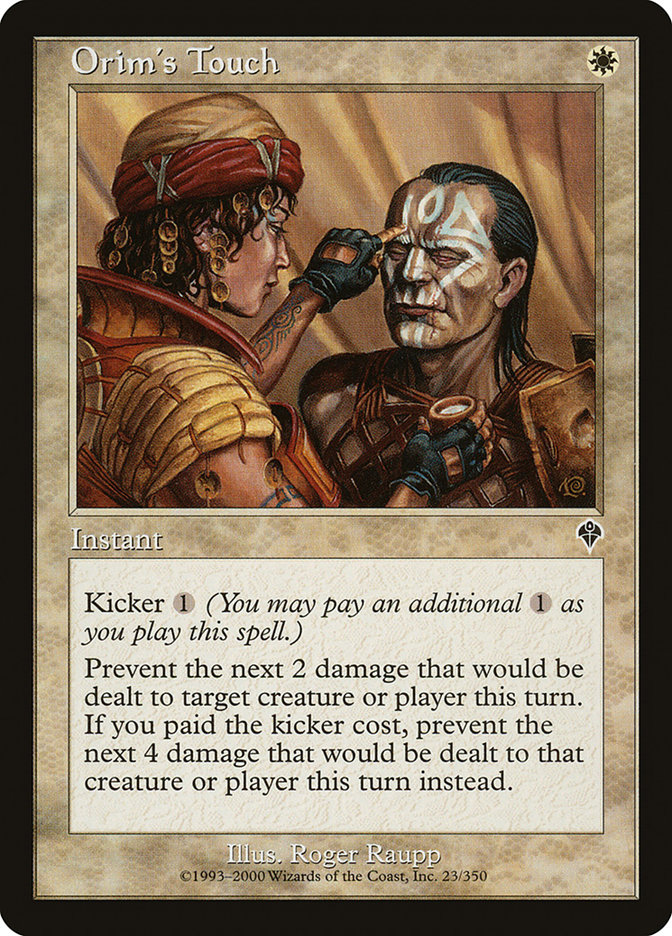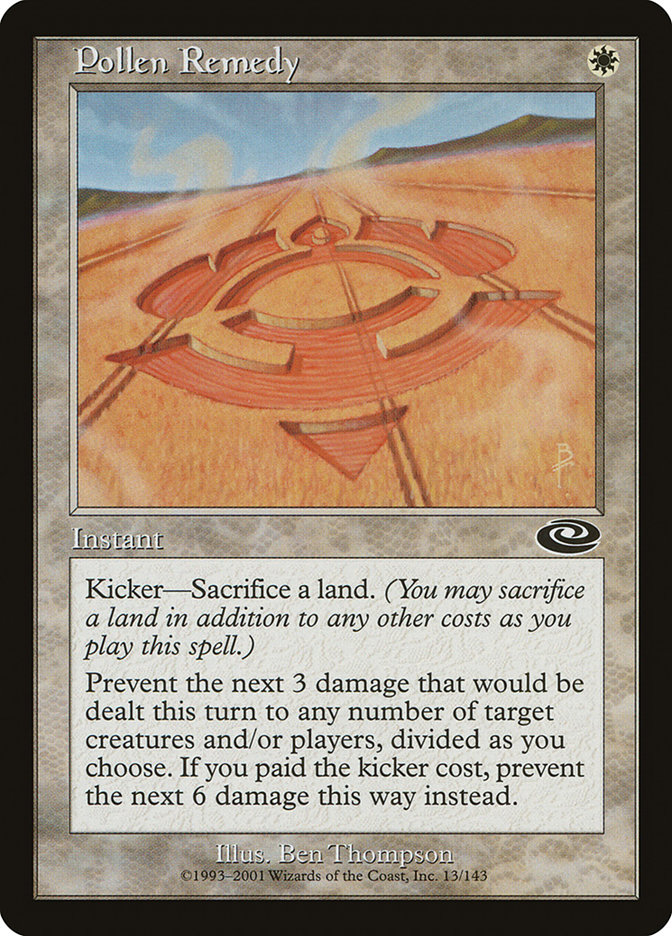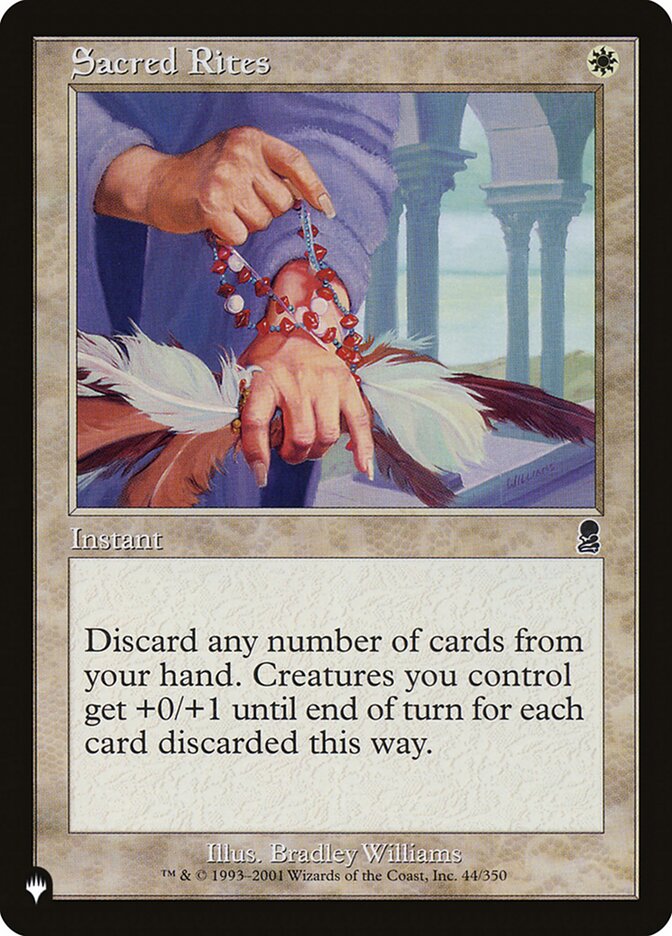Practiced Tactics MTG Card
| Mana cost | |
| Converted mana cost | 1 |
| Rarity | Common |
| Type | Instant |
| Released | 2020-09-25 |
| Set symbol | |
| Set name | Zendikar Rising |
| Set code | ZNR |
| Number | 32 |
| Frame | 2015 |
| Layout | Normal |
| Border | Black |
| Illustred by | Alex Konstad |
Text of card
Choose target attacking or blocking creature. Practiced Tactics deals damage to that creature equal to twice the number of creatures in your party. (Your party consists of up to one each of Cleric, Rogue, Warrior, and Wizard.)
Each individual has their own crucial role to play.
Cards like Practiced Tactics
Practiced Tactics is a unique piece in the strategy of creature-focused decks in Magic: The Gathering. Like Prismatic Strands, which offers prevention of any color of damage until end of turn, Practiced Tactics provides a more targeted approach. Instead of blanket coverage, it hinges on the number of creatures you control to determine the damage prevented. It’s a very tactical choice, especially in decks with a large number of creatures.
Then we have Mnemonic Wall in the realm of defensive spells. While not a direct way to prevent damage, it serves as a bulwark by providing an opportunity to recur a defensive or utility spell from the graveyard. This indirect method of protection can be instrumental when facing relentless attacks. However, Practiced Tactics has the advantage of being an instant, allowing you to adjust your defense dynamically during combat.
To sum it up, while different cards like Prismatic Strands and Mnemonic Wall each offer diverse forms of protection or utility, Practiced Tactics stands out for aggressive creature decks, enabling players to leverage their army’s size for immediate defensive impact.
Cards similar to Practiced Tactics by color, type and mana cost
Card Pros
Card Advantage: Practiced Tactics stands out for its ability to potentially remove an opponent’s creature while maintaining card parity in your hand. This can be pivotal in games where preserving resources is key to outlasting your opponent.
Resource Acceleration: While this card itself doesn’t directly provide resource acceleration, it aids in maintaining board presence. By potentially eliminating threats without spending multiple cards, you set the stage for more efficient plays and a smoother game tempo.
Instant Speed: The instant speed of Practiced Tactics allows for strategic flexibility. You can answer threats reactively, keeping your opponent guessing and disrupting their plans during crucial phases of their turn.
Card Cons
Discard Requirement: Practiced Tactics requires you to have a creature with the greatest power among creatures on the battlefield, which might force you to adjust your plays or leave you without the desired outcome if your creatures are not powerful enough.
Specific Mana Cost: As Practiced Tactics has a white mana cost, its inclusion is confined primarily to white-focused or multicolored decks, thereby limiting its integration in mono-decks of other colors.
Comparatively High Mana Cost: With a relatively elevated mana cost for an instant of its kind, players might find that there are more cost-efficient options for combat tricks available, potentially making Practiced Tactics a less favorable choice in a tightly curated deck.
Reasons to Include in Your Collection
Versatility: Practiced Tactics is a flexible card that adapts to various deck strategies. Its ability to bolster defense can be critical, making it a solid choice for decks focusing on creature-based combat or those needing some additional protection.
Combo Potential: With the right set of creatures on the board, Practiced Tactics can be the key to turning the tide in your favor. It synergizes well with decks that have a high density of creatures, potentially deterring opponents from attacking.
Meta-Relevance: In a meta that favors aggressive creature decks, Practiced Tactics can serve as a functional tool to throw off your opponents’ calculations, making it a potent addition to decks looking to hold their ground against such strategies.
How to beat
Practiced Tactics stands out in the realm of combat tricks within Magic: The Gathering. As a card designed to bolster defense, it enables a creature to deal damage equal to its toughness to a target attacking or blocking creature an opponent controls. This property makes it a key asset in warding off aggressive strategies or taking down formidable threats during the combat phase.
To effectively beat Practiced Tactics, it’s essential to be preemptive. Counterspells play a pivotal role as they can intercept and nullify Practiced Tactics before it impacts the board state. By keeping mana open for such responses, players can maintain the upper hand. Building a board presence with creatures that have indestructible or protection abilities can also diminish the effectiveness of Practiced Tactics, as targeting becomes difficult or impossible for your opponent.
Moreover, incorporating instant-speed removal or bounce spells offers a versatile solution, allowing you to neatly sidestep the effects of Practiced Tactics by eliminating the creature it aims to empower or returning it to its owner’s hand. This can leave your adversary’s strategy in disarray and turn the tide of the game in your favor.
Where to buy
If you're looking to purchase Practiced Tactics MTG card by a specific set like Zendikar Rising, there are several reliable options to consider. One of the primary sources is your local game store, where you can often find booster packs, individual cards, and preconstructed decks from current and some past sets. They often offer the added benefit of a community where you can trade with other players.
For a broader inventory, particularly of older sets, online marketplaces like TCGPlayer, Card Kingdom and Card Market offer extensive selections and allow you to search for cards from specific sets. Larger e-commerce platforms like eBay and Amazon also have listings from various sellers, which can be a good place to look for sealed product and rare finds.
Additionally, Magic’s official site often has a store locator and retailer lists for finding Wizards of the Coast licensed products. Remember to check for authenticity and the condition of the cards when purchasing, especially from individual sellers on larger marketplaces.
Below is a list of some store websites where you can buy the Practiced Tactics and other MTG cards:
 BUY NOW
BUY NOW BurnMana is an official partner of TCGPlayer
- eBay
- Card Kingdom
- Card Market
- Star City Games
- CoolStuffInc
- MTG Mint Card
- Hareruya
- Troll and Toad
- ABU Games
- Card Hoarder Magic Online
- MTGO Traders Magic Online
See MTG Products
Legalities
Magic the Gathering formats where Practiced Tactics has restrictions
| Format | Legality |
|---|---|
| Historicbrawl | Legal |
| Historic | Legal |
| Legacy | Legal |
| Paupercommander | Legal |
| Oathbreaker | Legal |
| Gladiator | Legal |
| Pioneer | Legal |
| Commander | Legal |
| Modern | Legal |
| Pauper | Legal |
| Vintage | Legal |
| Duel | Legal |
| Explorer | Legal |
| Penny | Legal |
| Timeless | Legal |
Rules and information
The reference guide for Magic: The Gathering Practiced Tactics card rulings provides official rulings, any errata issued, as well as a record of all the functional modifications that have occurred.
| Date | Text |
|---|---|
| 2020-09-25 | An ability referring to the number of creatures in your party gets a number from zero to four. Such abilities never ask which creatures are in your party, and you never have to designate specific creatures as being in your party. You can’t choose to exclude creatures from this count to lower the number. |
| 2020-09-25 | If a creature has more than one party creature type, and there are multiple ways to count that creature that could result in a different number of creatures in your party, the highest such number is used. For example, if you control a Cleric and a Cleric Wizard, the number of creatures in your party is two. You can’t choose to have it be just one by counting the Cleric Wizard first as a Cleric. |
| 2020-09-25 | To determine “the number of creatures in your party,” check whether you control a Cleric, whether you control a Rogue, whether you control a Warrior, and whether you control a Wizard. The number is the total number of those checks to which you answered yes. Each creature you control can be counted for only one of those checks. |
